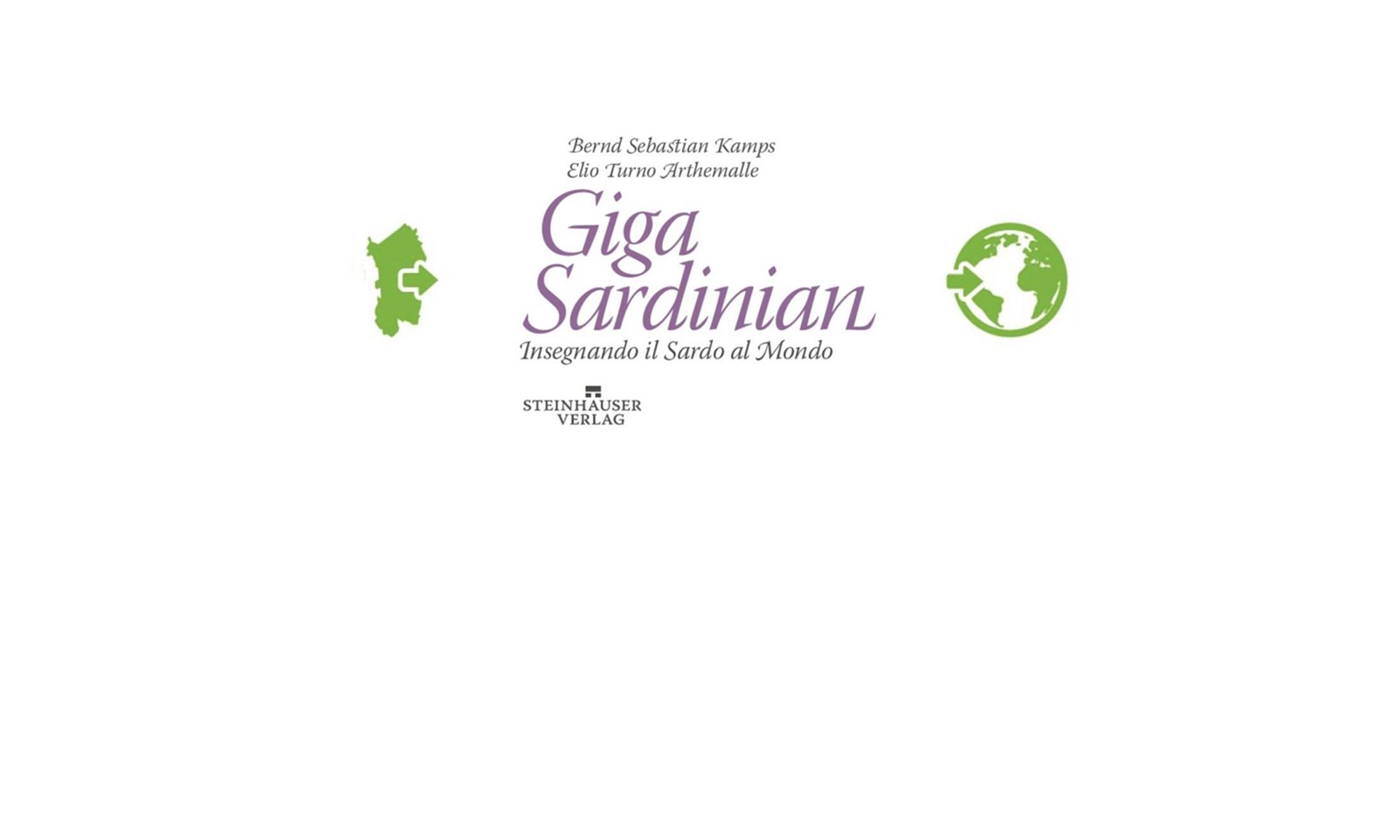Capitolo 1: Ajó, totus a Montes

.
| Unu pitzinnu tedescu (A) dimandat a unu pitzinnu sardu (B) ite depet fághere pro arribare a Montes in Orgósolo. | Un giovane tedesco (A) chiede a un giovane sardo (B) che cosa deve fare per arrivare a Montes, a Orgosolo. | |
| A | Iscusa-mi, depo andare a Montes. Ite depo fághere? | Scusami, devo andare a Montes. Che cosa devo fare? |
| B | Est fátzile. Si achirras inoghe in via Napoli, arribas a via Roma. Est in cue josso. A la bies? Jumpa s’istrada e che ses in sa firmada de su postale. Depes pigare su P. | È facile. Se scendi qui in Via Napoli, arrivi in Via Roma. È laggiù. La vedi? Attraversi la strada e sei alla fermata dell’autobus. Devi prendere il P. |
| A | Meda gratzias. In bon’ora. | Molte grazie. Arrivederci. |
| B | In bon’ora. (…) Ah, iscusa-mi, ti podo dimandare una cosa? | Arrivederci. (…) Ah, scusami, ti posso fare una domanda? |
| A | Tzertu! | Certamente! |
| B | Tue no ses sardu, veru? | Tu non sei sardo, vero? |
| A | No, so tedescu. Proite? | No, sono tedesco. Perché? |
| B | Proite allegas in sardu? Babu tuo e mama tua sardos sunt? | Perché parli in sardo. Tuo padre o tua madre sono sardi? |
| A | No, babu meu e mama mea sunt totu as duos tedescos. | No, mio padre e mia madre sono tutti e due tedeschi. |
| B | Non cumprendo. Comente faghes a allegare su sardu? | Non capisco. Come fai a parlare il sardo? |
| A | Eh… | Eh… |
.
.
Pronunciation
Important advise – Listen to the GigaSardinian Orgosolo audios several times before checking the following pronunciation details. First get familiar with the words and theirs sounds!
1. In some cases, Orgolese words differ more or less from Logudorese words. Two examples from the current text, ‘josso’ and ‘jumpare’:
|
Orgolese |
Logudorese |
Italian |
English |
|
josso |
giosso |
giù |
down |
|
jumpare |
giampare |
saltare |
to jump |
In Orgolese, like in English and French, writing and spelling don’t always overlap. If you follow our advice – see page 18: simultaneously reading and listening – you’ll be familiar with Orgolese writing within weeks. Here we present the key pronunciation rules.
2. The sounds c, g and f are generally not pronounced. In the list below, don’t pronounce the ‘f’ and replace ‘c/ch’ and ‘g/gh’ with a so-called ‘glottal stop’.
| fághere | cosa |
|
iscusa |
comente |
|
pigare |
faghes |
Exceptions: pronounce the c in ‘non cumprendo’ and the f in ‘fátzile’.
3. At the end of words, Sardinian adds often so-called ‘paragogic vowels’ which are sometimes pronounced and sometimes not… but never written! While listening to the audio of the current chapter, you’ll clearly distinguish the vowels shown in blue. Don’t write them!
|
Write |
Pronounce (sometimes, not always) |
|
dimandat |
dimandada |
|
arribas |
arribasa |
|
est |
este |
|
bies |
viese |
|
ses |
sese |
4. In the following examples, pronounce the consonants shown in green (–t, –s or –d–) as a rolled ‘r’:
|
Write |
Pronounce |
|
depet fághere |
deper fághere |
|
est fátzile |
er fátzile |
5. In the following example, pronounce the letter ‘b’ as a ‘v’:
|
Write |
Pronounce |
| bies | viese |
6. A common feature of Orgolese is swapping letters. In some cases, the combination vowel + ‘r’ becomes therefore ‘r’+vowel:
|
Write |
Pronounce |
|
firmada |
frimada |
7. Don’t pronounce the final –t of the third person plural, present tense:
|
Write |
Read |
||
|
sunt |
suni |
||
8. Special case: est (English: is; the third person singular of éssere in the present tense) can be pronounced in four different ways. The audio files will help you with the correct pronunciation.
|
è |
|
es |
|
est |
|
este |
The four variants depend entirely on the context. Learn entire sentences by heart.
.



